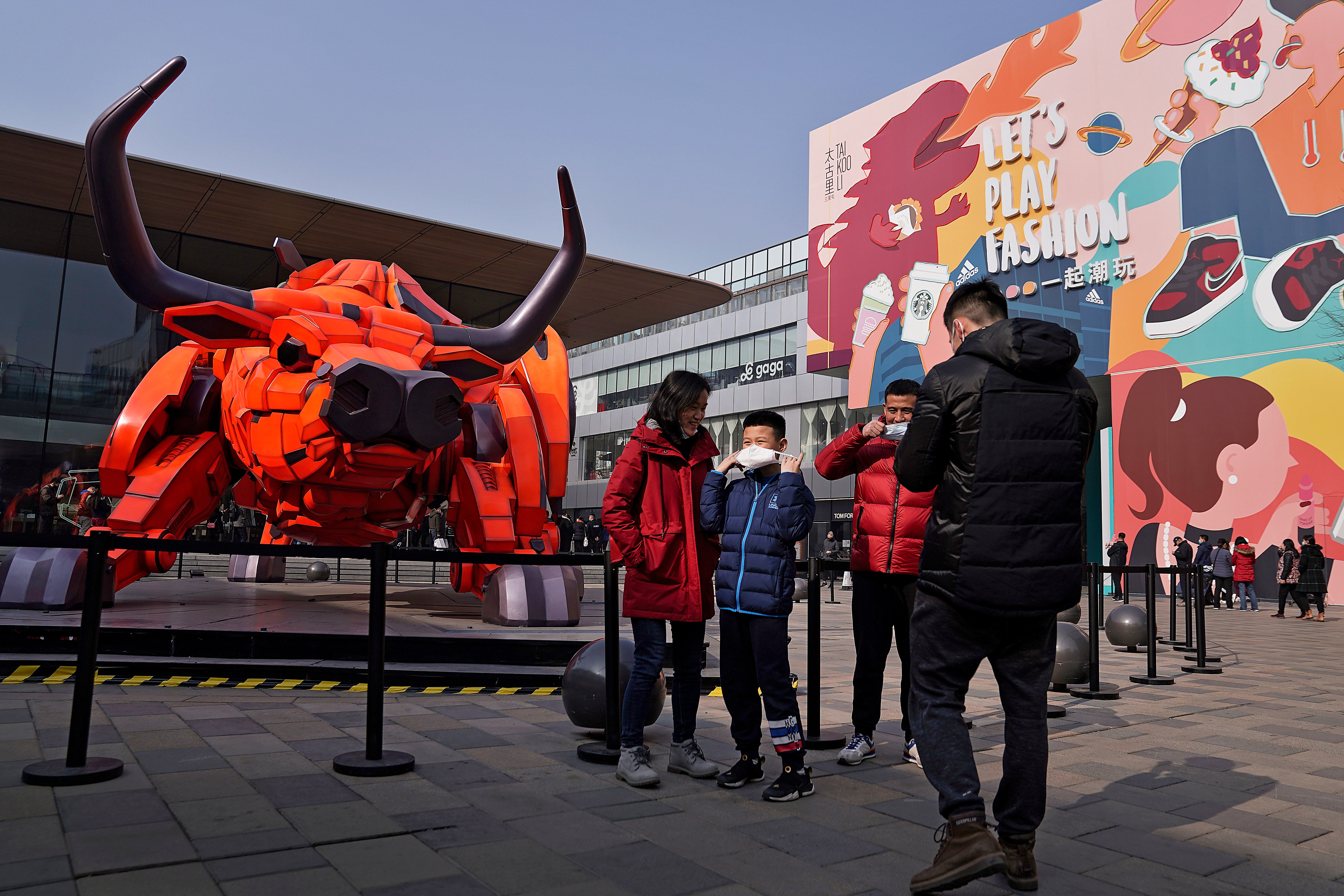China holiday train travel down nearly 70% amid restrictions
Railway journeys in China during the usually frenetic Lunar New Year holiday travel rush are down by almost 70% amid calls for people to stay where they are to avoid a new outbreak of COVID-19

Your support helps us to tell the story
From reproductive rights to climate change to Big Tech, The Independent is on the ground when the story is developing. Whether it's investigating the financials of Elon Musk's pro-Trump PAC or producing our latest documentary, 'The A Word', which shines a light on the American women fighting for reproductive rights, we know how important it is to parse out the facts from the messaging.
At such a critical moment in US history, we need reporters on the ground. Your donation allows us to keep sending journalists to speak to both sides of the story.
The Independent is trusted by Americans across the entire political spectrum. And unlike many other quality news outlets, we choose not to lock Americans out of our reporting and analysis with paywalls. We believe quality journalism should be available to everyone, paid for by those who can afford it.
Your support makes all the difference.Railway journeys in China during the usually frenetic Lunar New Year holiday travel rush are down by almost 70% amid calls for people to stay where they are to avoid a new outbreak of COVID-19
The China State Railway Group on Saturday reported 52.33 million passenger trips from Jan. 28 to Feb. 11 — a decline of 68.8% from the same period last year.
The travel rush is generally considered the world’s largest annual human migration, when urban residents migrant workers and students return to their hometowns for family gatherings.
Air and bus travel are also down considerably, but one figure is up: China’s box office receipts smashed the previous one-day record on Friday, the first day of the new lunar Year of the Ox, bringing in more than 1.736 billion yuan ($269 million), ticket agency Maoyan said.
The full economic impact of the restrictions on holiday spending is not yet clear. Buddhist and Daoist temples that usually are packed with worshippers were ordered closed, along with the seasonal outdoor fairs.
Streets in major cities were largely empty but home deliveries of meals and household items remain strong, partly because people were staying home and not visiting friends and family to deliver gifts in person. The official China Daily newspaper said deliveries surged by 223% year-on-year on the eve of the Lunar New Year and the following day, with more than 130 million packages distributed.
While most of the economy has reopened, strict mask wearing, electronic monitoring and periodic lockdowns have helped virtually eliminate domestic coronavirus cases
China's National Health Commission on Saturday reported no new local cases for the sixth straight day and eight new cases brought from overseas, bringing the country's total number of confirmed cases to 89,756 with 4,636 deaths.
Chinese hospitals are currently treating 763 patients, 12 of whom were listed in serious condition, while another 470 people were being monitored in isolation for having tested positive for the virus without displaying symptoms.